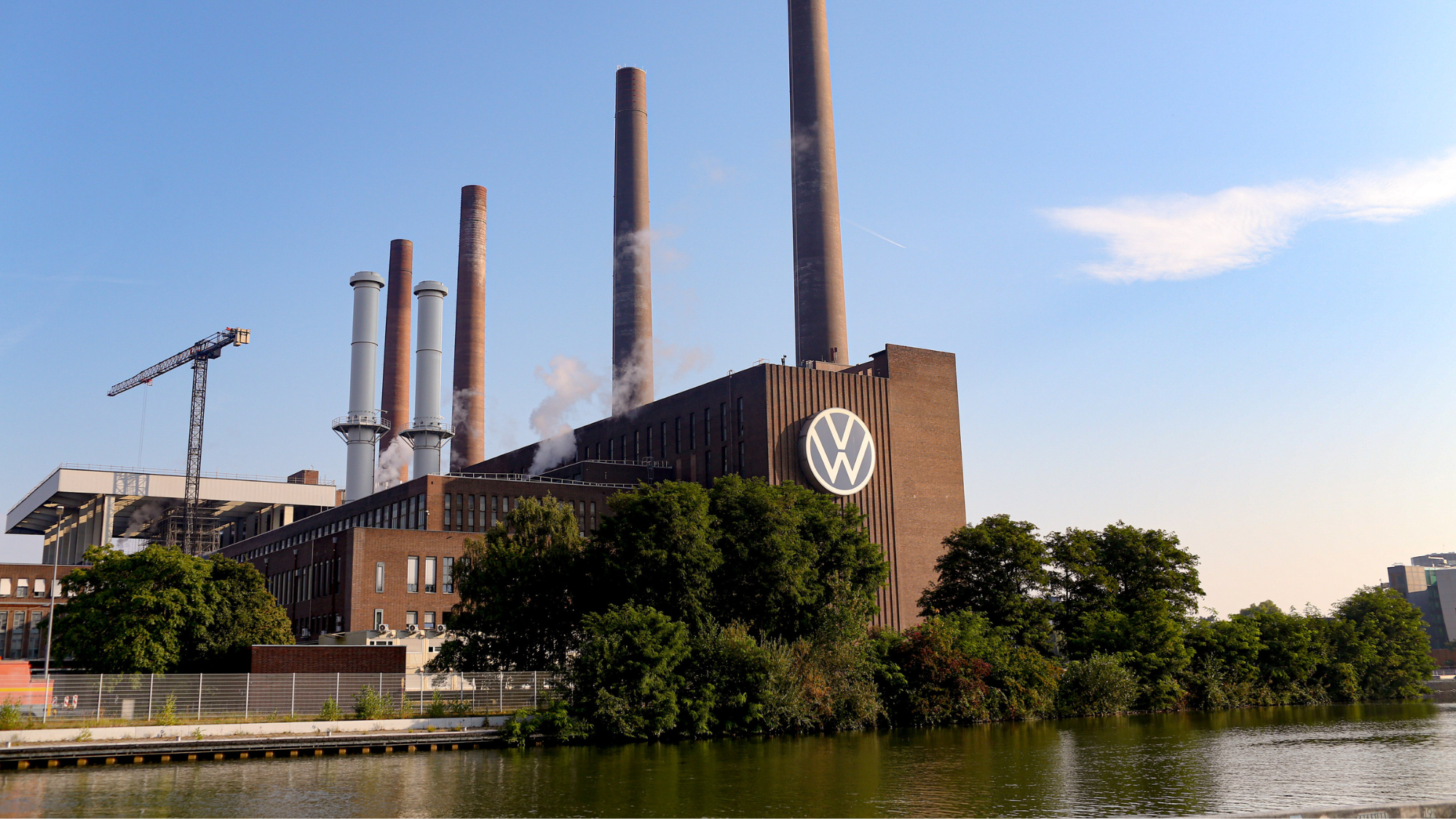Volkswagen on the ropes: a crisis of its own making
The EV revolution has 'left VW in the proverbial dust'

A free daily email with the biggest news stories of the day – and the best features from TheWeek.com
You are now subscribed
Your newsletter sign-up was successful
The term "Zeitenwende", meaning "a changing of the times", is being heard rather frequently in Germany at the moment, said Dirk Kaufmann and Nadine Mena Michollek in Deutsche Welle (Bonn). Coined by Chancellor Olaf Scholz in relation to shifting foreign and defence policy demands after Russia invaded Ukraine, it has also come to describe massive changes in the German economy . And no company symbolises these changes quite like Volkswagen, which is reportedly considering closing three of its ten German plants, axing tens of thousands of jobs and cutting pay, as it looks for €4bn in savings after seeing its profits massively eroded by Chinese competitors.
There are some companies that, owing to their size and history, are almost impossible to separate from their home country, said Michael Rasch in Neue Zürcher Zeitung (Zürich). "Volkswagen is one of them." Founded by the Nazis in 1937 as a state-owned carmaker, it became a symbol of German economic might. And today, following two years of stagnant growth in Germany , it is seriously struggling: profits were down by nearly 64% year-on-year in the third quarter of 2024, and its 300,000-strong workforce could be facing a collective 10% wage cut.
Most of Volkswagen's problems can be traced to China, said Jordyn Dahl on Politico (Brussels). For years, the Asian superpower had been VW's biggest export market: in 2017, 41% of the 10,038,650 passenger vehicles it sold went there. But that figure has plunged to a third in recent years, as Chinese consumers have flocked to electric cars made in their own country. Today, EVs account for about 43% of all sales in China; 16 of the world's top 20 EV brands are Chinese; and the likes of EV powerhouse BYD have "left VW in the proverbial dust".
The Week
Escape your echo chamber. Get the facts behind the news, plus analysis from multiple perspectives.

Sign up for The Week's Free Newsletters
From our morning news briefing to a weekly Good News Newsletter, get the best of The Week delivered directly to your inbox.
From our morning news briefing to a weekly Good News Newsletter, get the best of The Week delivered directly to your inbox.
Volkswagen, which also owns Audi and Porsche, only has itself to blame, said Hans Well in Süddeutsche Zeitung (Munich). When the EV revolution began to take hold a few years ago, it should have poured resources into developing affordable electric cars with cutting-edge battery technology. Instead, it kept producing "ever-larger" gas-guzzling SUVs, which could be sold for bigger profit margins, while its "frustrated electric engineers went to China", whose companies are now flooding European car markets, too.
Worse, VW did all this while allowing unions to ride roughshod over its business interests, said Christian Müssgens in Frankfurter Allgemeine Zeitung. Volkswagen employees have long benefited from generous pay deals and cast-iron job security, while resisting all efforts by the management to rein in costs to cope with challenges such as soaring energy prices. Now, tens of thousands of employees face the prospect of losing their jobs. That will come as a bitter blow to the workers affected. But if Volkswagen is to have any chance of catching up with the competition, it has little choice but to act.
A free daily email with the biggest news stories of the day – and the best features from TheWeek.com
-
 Trump’s EPA kills legal basis for federal climate policy
Trump’s EPA kills legal basis for federal climate policySpeed Read The government’s authority to regulate several planet-warming pollutants has been repealed
-
 Political cartoons for February 13
Political cartoons for February 13Cartoons Friday's political cartoons include rank hypocrisy, name-dropping Trump, and EPA repeals
-
 Palantir's growing influence in the British state
Palantir's growing influence in the British stateThe Explainer Despite winning a £240m MoD contract, the tech company’s links to Peter Mandelson and the UK’s over-reliance on US tech have caused widespread concern
-
 Currencies: Why Trump wants a weak dollar
Currencies: Why Trump wants a weak dollarFeature The dollar has fallen 12% since Trump took office
-
 Elon Musk’s starry mega-merger
Elon Musk’s starry mega-mergerTalking Point SpaceX founder is promising investors a rocket trip to the future – and a sprawling conglomerate to boot
-
 TikTok: New owners, same risks
TikTok: New owners, same risksFeature What are Larry Ellison’s plans for TikTok US?
-
 Will SpaceX, OpenAI and Anthropic make 2026 the year of mega tech listings?
Will SpaceX, OpenAI and Anthropic make 2026 the year of mega tech listings?In Depth SpaceX float may come as soon as this year, and would be the largest IPO in history
-
 Leadership: A conspicuous silence from CEOs
Leadership: A conspicuous silence from CEOsFeature CEOs were more vocal during Trump’s first term
-
 Ryanair/SpaceX: could Musk really buy the airline?
Ryanair/SpaceX: could Musk really buy the airline?Talking Point Irish budget carrier has become embroiled in unlikely feud with the world’s wealthiest man
-
 Powell: The Fed’s last hope?
Powell: The Fed’s last hope?Feature Federal Reserve Chairman Jerome Powell fights back against President Trump's claims
-
 Taxes: It’s California vs. the billionaires
Taxes: It’s California vs. the billionairesFeature Larry Page and Peter Thiel may take their wealth elsewhere